Robotic Automation in the Metal Industry
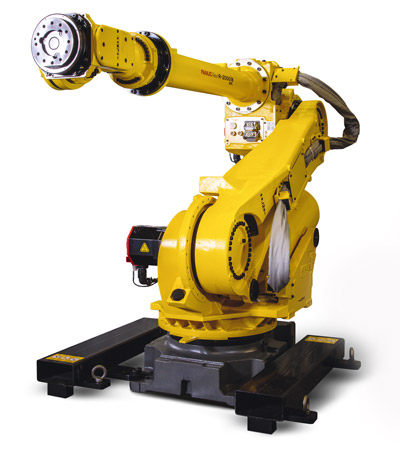
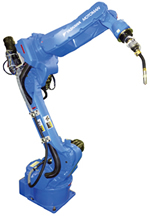
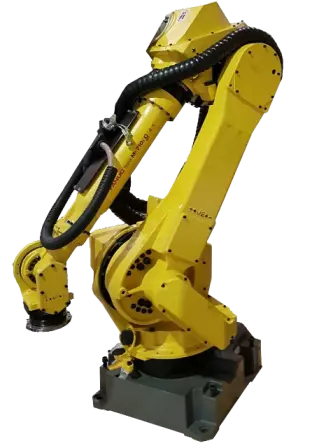
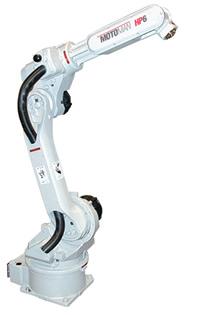
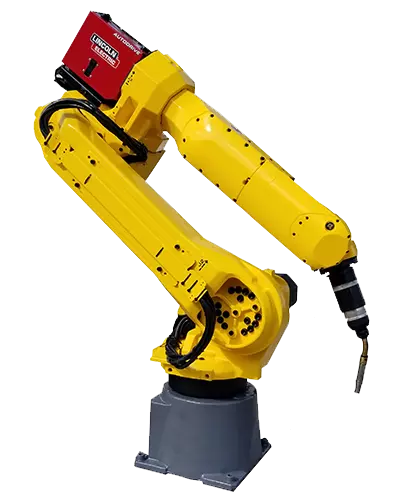
The metal industry is one of the largest industrial sectors. Many of the parts produced by metal fabricators are key components used to produce products in other industries such as the automotive, aerospace, electronics, agriculture, medical device, construction as well as many others. With the metal industry being critical to so many other sectors, the demand for their supply is high. Metal fabricators cannot afford to have poor quality parts, inconsistent productivity rates, or slow productions. This is why many metal manufacturers rely on robotic automation. Many aspects of metal fabrication are automated by the ABB IRB 2400-16 and other industrial robots. These aspects include welding, material handling, material removal, and painting applications.
Welding
Welding may be the most obvious application for articulated robots in the metal industry. Robotic manipulators are used by metal fabricators to automate arc welding, spot welding, and laser welding. Industrial robot arms like the FANUC Arcmate 120ic are used to automate arc welding applications including MIG, TIG, plasma, and FCAW. While spot welding applications are typically automated by larger robots. The FANUC R-2000ib series is ideal for spot welding automation. Laser welding can be automated by many of the same factory robots used for arc welding, including the Yaskawa MA1440. Robots allow for precise, accurate, and fast welds. They ensure high quality welds while remaining efficient in their operation. Welding robots provide metal fabricators the experience level of a skilled welder without the expensive salary.
Material Handling
Material handling robots are very common in the metal industry. Metal parts can often be large, heavy, or just awkward for humans to handle. The Yaskawa MH24 and other material handling robots can safely lift and move metal workpieces around fab shops. The high payload of the FANUC M-900ia/260L makes it ideal for lifting and transferring large or hefty parts. Material handling applications automated by robots in the metals industry include part transfer, picking, machine loading and unloading, machine tending, palletizing, and sorting.
Material Removal
Material removal is another set of manufacturing processes that can be dangerous for humans which is why they are best to be automated by industrial robots. In the metals industry material removal robots are used to automate deburring and cutting applications. The FANUC M-710ic/50 is perfect for automating deburring. Its controlled movements ensure smooth metal edges, removing any imperfections from the workpiece. Cutting applications automated by robots in fab shops include laser, plasma, oxyfuel, and waterjet. These processes can involve high temperatures which is why automating with the ABB 2600 and other manufacturing robot arms is best.
Painting
Metal painting can involve large workpieces, working with flammable chemicals, exposure to toxic fumes, and repetitive movements. Automating painting with robots is much safer than using workers. Painting robots can handle larger workpieces with their long reach. They also feature explosion proof arms that allow them to safely work with flammable paints. With robot manipulators there is no risk of potential health hazards from paint fumes. The controlled movements of the FANUC Paint Mate 200ia/5L ensures smooth and even paint finishes. Errors such as overspray and dripping are largely prevented as painting robots can control the parameters of the application. All parts are painted identical to one another.
Robots Done Right is the place to start when it comes to used robots. Contact us if you are interested in buying or selling a used robot.




